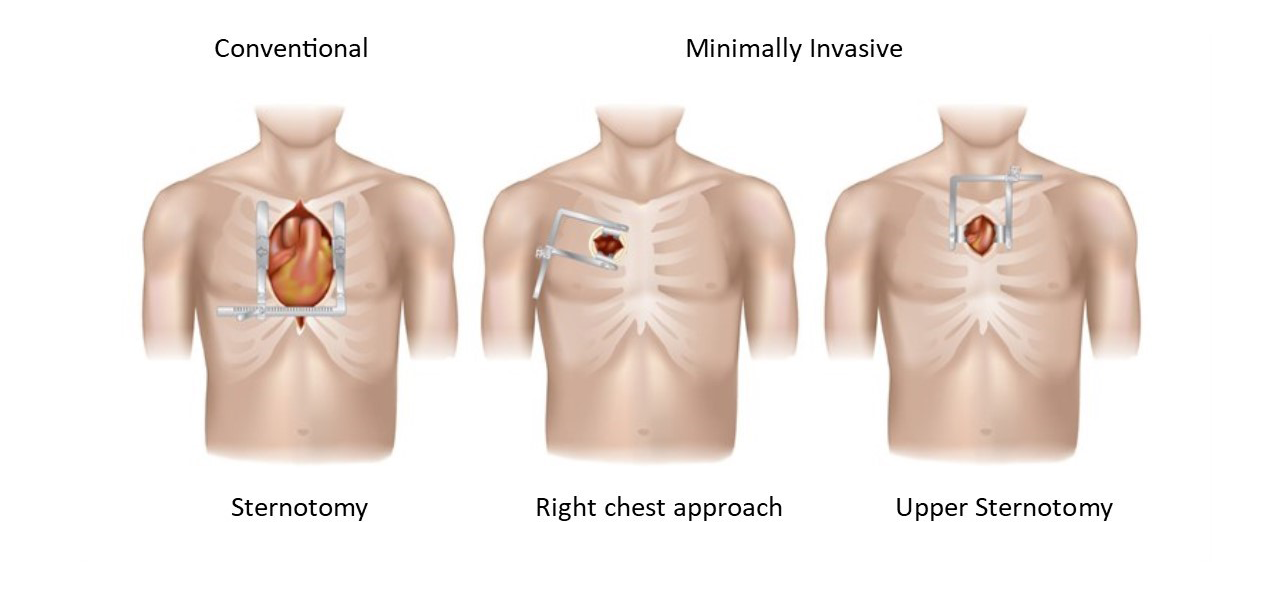
Heart Valve Replacement Surgery: A Complete Guide
Heart valve replacement surgery is performed in cases when your heart valves do not function properly or are damaged. Valve malfunction or damage is a serious problem that can affect the overall function of your heart. Therefore, in this situation, expert cardiologists decide to replace or repair the valve.
Types of Heart Valve Replacement
There are different types of heart valve replacement surgeries available, some of the major types of which are:
Aortic Valve Replacement: This surgery is performed when the aortic valve does not open or close properly, obstructing blood flow.
Surgery Double Valve Replacement: Two valves are replaced simultaneously in this surgery.
Pulmonary Valve Replacement: This surgery is performed for patients whose pulmonary valve is damaged.
Mitral Valve Replacement: This type of surgery is done to replace the mitral valve when it leaks or does not close properly.
Why is heart valve replacement needed?
Heart valve replacement may be needed for several reasons, such as:
High Blood Pressure: High blood pressure puts extra pressure on the heart, which can damage the valves.
High Cholesterol: Increased cholesterol can cause plaque to form in the valves, affecting their function.
Diabetes: Diabetes can also be a major cause of valve damage.
Obstructing the Flow of Blood: Valve damage can obstruct the flow of blood, putting more pressure on the heart.
Leaky Valves: If the valve is leaking, it cannot control blood flow properly and may need replacement.
Other Heart Disease Risk Factors: Other heart diseases can also increase the need for heart valve replacement.
Surgery Procedure
Heart valve replacement surgery is a complex and sensitive procedure that involves the following steps:
Bypass Machine: During surgery, you are placed on a bypass machine, which maintains blood circulation in your body during surgery.
General Anesthesia: You are given general anesthesia to make you unconscious during surgery.
Separation of the Chest: The surgeon separates your chest and opens the rib cage so that he can reach the heart and begin the operation.
Valve Replacement: The damaged valve is removed and replaced with a new valve.
Post-Surgery Care
After surgery, your care is extremely important. After surgery, you are kept in the ICU so that your heart function and health can be monitored. Gradually, you are transferred to the general ward and your health is re-checked.
Possible Complications
There may be some complications after surgery, such as:
Infection: There is a risk of infection after surgery.
Bleeding: Bleeding may occur during or after surgery.
Blood Clots: There may be a risk of blood clots after surgery, which can be serious.
Outcome and Lifestyle Changes
Even after a successful outcome of heart valve replacement surgery, you may need to make some important changes in your lifestyle. You will have to adopt a healthy diet, exercise regularly, and follow the instructions given by the doctor. This will ensure that your new valve continues to function properly and your heart health improves.
Conclusion
Heart valve replacement surgery is an important medical procedure that can help restore your heart function and enhance your quality of life. This surgery is performed by a specialist cardiologist, who evaluates your heart condition and prepares the most suitable treatment plan for you. With the right care and treatment, you can lead a healthy and active life after this surgery.

